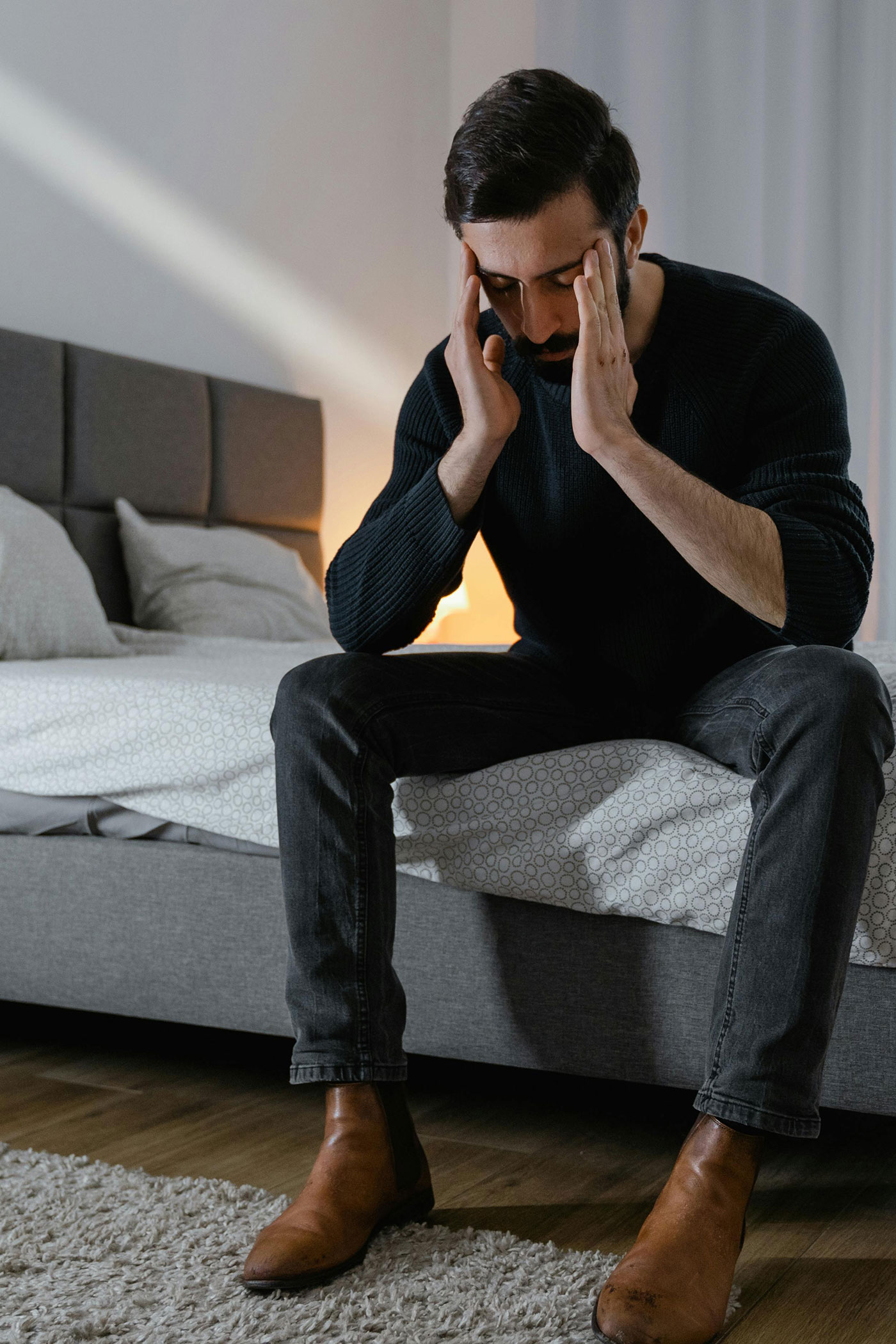Cognitive Behavioral Therapy for Insomnia (CBT-I) is the gold standard for treating chronic insomnia. This short-term, evidence-based therapy helps adults fall asleep faster, stay asleep longer, and improve overall sleep quality. I work with clients in-person in Austin and via telehealth across Texas, providing structured insomnia treatment without long-term medication.
Tired of Being Tired? CBT-I Gets to the Root of Sleepless Nights
My Insomnia Story
For most of my life, sleep came easily—I never gave it much thought. Then, a health issue and medications disrupted my sleep. Even after stopping the medication, my sleep didn’t return to normal.
I’d go to bed exhausted, hoping I’d fall asleep like I did before—but that never happened. When I did fall asleep, I’d wake up in the middle of the night and just … be awake. It was frustrating. It took a toll on my energy, my mood, and my ability to enjoy my life. I even tried sleep aids, but they left me groggy or waking in the middle of the night.
When I read about CBT-I, I figured, “I’m a therapist—I can totally DIY this.” Spoiler: I could not. Three days in, I was back to my old routine, swearing I’d try again … eventually! Turns out, sleep doesn’t care about credentials.
After completing CBT-I with a specialist, I finally found consistent, refreshing sleep. Now, I help clients in Austin and across Texas via telehealth do the same.
Read my Bio
Because Good Sleep is a Necessity, Not a Luxury.
Sleep isn’t a luxury — it’s the foundation of your health.
Getting consistent sleep through CBT-I therapy helps your heart stay strong, metabolism balanced, immune system sharp, and emotions steady. I work with adults in Austin and via telehealth across Texas to improve sleep naturally and sustainably.
(Source: National Heart, Lung, and Blood Institute)
You don’t need a sleep tracker or fancy clinic to sleep better.
Steady routine, regular movement, and CBT-I can help you get the seven hours of solid sleep your body and brain need to thrive.
(Source: Dr. Brienne Miner, Yale School of Medicine, via NYT 2025)
Chronic insomnia affects about 1 in 10 adults.
CBT-I works just as well as sleep meds in the short term — and even better in the long run. Most people see results in just 4–8 sessions.
(Source: New York Times, August 2023)
CBT-I works without the side effects.
Major sleep authorities agree: CBT-I is as effective as medication but delivers lasting results without dependency or side effects.
(Sources: American Psychological Association, American Academy of Sleep Medicine)
Many sleep meds are for short-term use — most people don’t realize it.
The American College of Physicians recommends combining CBT-I with a gradual medication taper for better, lasting sleep success.
Better sleep, better mental health.
Struggling to sleep can fuel anxiety and depression — and vice versa. CBT-I breaks that cycle, helping improve both your sleep and your emotional resilience, often more effectively than medication alone.
(Sources: Dr. Aric Prather, UCSF & Dr. Lynn Bufka, APA, via NYT 2024)


